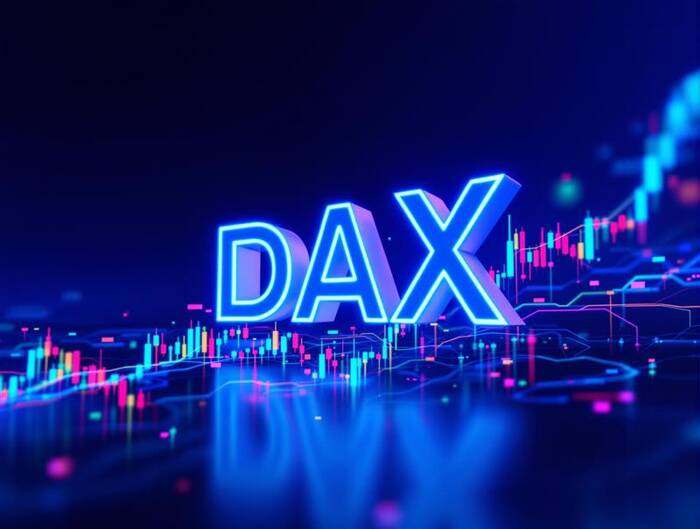Commerzbank and Deutsche Bank gained 1.48 and 2.91%, respectively, while Infineon Technologies jumped 3.58%.
Meanwhile, Rheinmetall tumbled 3.82% as investors reacted to the Iran-Israel truce.
German Business Sentiment in Focus
During Tuesday’s European session, business sentiment trends will require consideration. Economists forecast Germany’s Ifo Business Climate Index to rise from 87.5 in May to 88.3 in June.
A higher reading could boost demand for DAX-listed stocks. Improving sentiment may increase employment, potentially driving consumer spending. A pickup in consumer spending would bolster the German economy. However, investors may brush aside weaker numbers as the focus remains on Middle East developments and trade headlines.
Trade Headlines Pivotal for the DAX
While the Iran-Israel ceasefire sends the DAX higher, US-EU trade developments remain crucial for near-term trends. The US and the EU have cut tariffs until July 9, when a failure to reach a trade deal could bring full reciprocal US tariffs on EU goods into effect.
Stalled talks would likely impact export-focused DAX-listed stocks, while progress toward a deal could lift risk appetite.
Wall Street Advances on Middle East Developments
US markets closed with gains on June 23 as investors reacted to reports of Iran keeping the Strait of Hormuz open. The Nasdaq Composite Index and S&P 500 advanced 0.94% and 0.96%, respectively, while the Dow rose 0.89%.
Rising expectations of a Q3 Fed rate cut contributed to Monday’s gains. FOMC members have voiced support for a July rate cut. Fed Governor Michelle Bowman reportedly stated:
“It is time to consider adjusting the policy rate. Should inflation pressures remain contained, I would support lowering the policy rate as soon as our next meeting in order to bring it closer to its neutral setting and to sustain a healthy labor market.”
Last week, Fed’s Christopher Waller downplayed the potential impact of tariffs on inflation, signaling support for further policy easing.
US Consumer Sentiment and the Fed in Focus
Later in the European session, US consumer sentiment data could influence risk sentiment. Economists expect the Conference Board Consumer Confidence Index will rise to 99.8 in June, up from 98 in May. Better-than-expected numbers could signal a pickup in consumer spending, potentially fueling inflation. Conversely, a lower reading could fuel speculation about a US recession, supporting a more dovish policy stance.
Fed speakers will affect rate cut bets. Fed Chair Powell will give testimony on Capitol Hill. Insights into the Fed’s policy outlook could be crucial for risk assets.
Near-Term Outlook
The DAX’s direction hinges on developments in the Middle East, US-EU trade talks, and ECB commentary.
Bearish Scenario: Renewed Iran-Israel tensions, stalled US-EU trade talks, or hawkish central bank signals. Under these scenarios, the DAX could drop toward 25,000, exposing the 23,000 support level.
Bullish Scenario: Progress toward a US-Iran nuclear deal and dovish central bank cues may drive the DAX toward 24,000.
DAX Technical Indicators
Daily Chart
After the Iran-Israel news-fueled rally, the DAX trades above the 50-day and 200-day Exponential Moving Averages (EMA), signaling bullish momentum.
A breakout above 23,750 could signal a move toward 24,000. A sustained move above 24,000 may enable the bulls to target the June 5 record high of 24,479.
On the downside, a drop below the 50-day Exponential Moving Average (EMA) could expose the crucial 23,000 support level.
The 14-day Relative Strength Index (RSI) at 52.77 indicates the DAX has room to climb to 24,479 before entering overbought conditions (RSI > 70).

